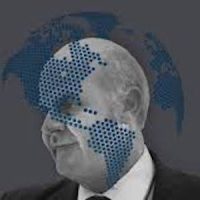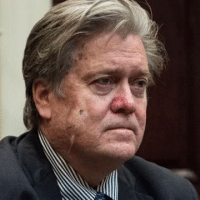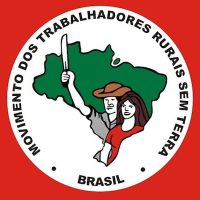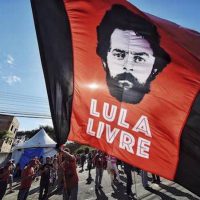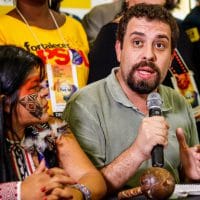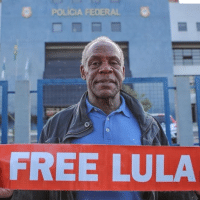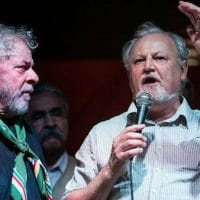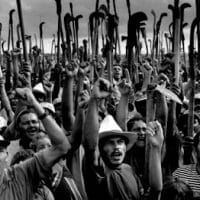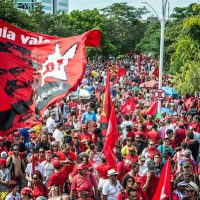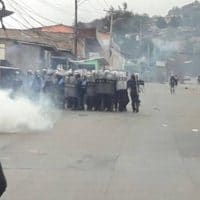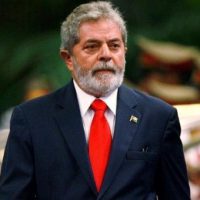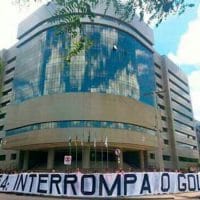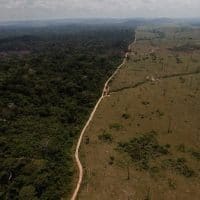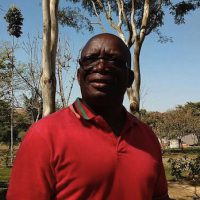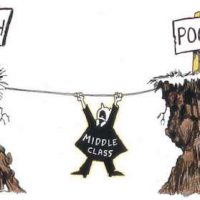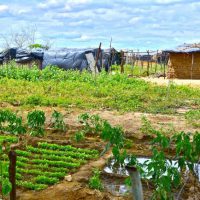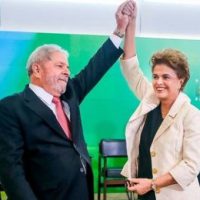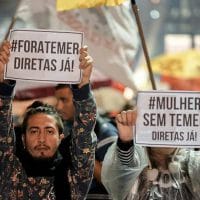-
The Atlas Network’s insidious impact on the ground
Over the decades, the Atlas Network has been financing a variety of organizations that seek to influence the public and promote capitalist ideas.
-
Elections in Brazil–guess who turns up?
Just when you think that they have already done enough damage, that they have seen the light, and maybe they have repented and disappeared to enjoy the wealth they have amassed thanks to an insane capitalist system, they surface again like a cancer that no surgery or radiation has been able to remove.
-
We defend the Constituent Assembly
The national leader of the Landless Rural Workers Movement (MST), the economist João Pedro Stédile, is at the frontline for the liberation of former President Luiz Inácio Lula da Silva. He predicts that if Lula’s candidacy is prevented, a political crisis will become even more acute.
-
The narrative is still Lula
He has been condemned to this cell in Curitiba by a judicial process that has his supporters outraged and his detractors gleeful. A week ago, judges went back and forth over whether he could be released while he appealed a verdict on a corruption case known as Operation Car Wash.
-
Lula or nothing? The dilemmas of the Brazilian left
The urgent task of defeating the right in the upcoming elections cannot come at the price of compromising the future. If the new radical left fails to put forward a clear critique of Lula’s legacy the dissatisfaction with the intrinsic limits of neo-developmentalism will be easily captured by new voices on the right.
-
Imperialism has had a tough week
Just when you think things are far too bleak, the human spirit rises to surprise you. In Brazil, the truckers went on an extended strike. They are angry about the fuel prices. It has made it impossible for them to make a living.
-
Peripheral Fascism—theory and practice
A short obituary for two dear comrades: Theotonio dos Santos (Carangola, 1936 – Rio de Janeiro, 2018) and Marielle Franco (Rio de Janeiro, 1979 – Rio de Janeiro 2018).
-
Landless Workers’ movement leader: “Lula will be freed if people take to the streets”
MST leader João Pedro Stédile says Lula’s imprisonment is “yet another chapter in the coup”
-
Movements of millions say no to gene drives as Brazil attempts to legalize genetic extinction technology
The largest rural movements in Brazil, representing well over a million farmers, are protesting a new Brazilian regulation that would allow release of gene drives, the controversial genetic extinction technology, into Brazil’s ecosystems and farms.
-
A trial for Lula and Brazilian democracy: What’s next for Brazil?
Brazil has just taken another step toward the dismantling of its democracy. On January 24, an appeals court confirmed a previous ruling against former President Luiz Inácio Lula da Silva (Workers’ Party), sentencing him to over 12 years in jail.
-
Protests in Honduras intensify leading up to inauguration day
Juan Orlando Hernández, who was “elected” president in Honduras as a result of fraud and corruption, will hold his swearing in ceremony on January 27 in what may be the first closed-door inauguration (although his government has purposely not shared details about the ceremony).
-
Lula, Brazil elections and the left
In an exclusive interview with teleSUR, Brazilian professor and researcher Sabrina Fernandes discusses former President Luiz Inacio “Lula” da Silva’s Jan. 24 corruption trial and forthcoming elections in the South American country.
-
Lula’s witch trial: who are the TRF4?
Some are calling it the Coup’s endgame, others the “final battle” for Brasil’s next decade.
-
‘Brazil has lost control over its natural resources because it has lost its sovereignty’
One of the main issues of Michel Temer’s government is the surrender of Brazilian natural resources to national and foreign economic groups.
-
There can be no revolution if we do not overcome racism
Cosmas Musumali participated in a seminar on Pan-African Thought at the Florestan Fernandes National School, which is famous in Brazil for its social and political commitment.
-
The fall offensive: the U.S., France and Brazil
The fall of 2017 will witness the most brutal assault on working and middle class living standards since the end of World War II. Three presidents and their congressional allies will ‘revise’ labor legislation, progressive income tax laws and regulations and effectively end the mixed economy in France, the US and Brazil.
-
Land (in) justice in Brazil
The implementation of austerity measures in the Brazilian countryside, then, casts a long shadow on the potential of farming and land reform to provide the next generation with a sustainable future. It threatens decades of progress made by land justice warriors.
-
Brazil’s Lula innocent, conviction attacks democracy: Rousseff
In the wake of the sentencing of Workers Party leader President Luiz Inacio Lula da Silva to more than 9 years in prison for alleged corruption charges, former President Dilma Rousseff has joined masses of supporters in denouncing the charges and declaring the popular leader’s innocence.
-
‘We need direct elections now and an emergency plan for the people’
Leader of the Landless Rural Workers’ Movement (MST), Joao Pedro Stedile, on the Brazilian political scenario, the role of the O Globo media network, the internal divisions among the putschists, and the need of building a transition government and the people’s project of Brazil.
-
The Truth About the Coup in Brazil
Brazil’s Landless Workers Movement, Movimento dos Trabalhadores Rurais Sem Terra (MST), is a social movement founded in 1984. For more information, contact Cassia Bechara at [email protected]>.

